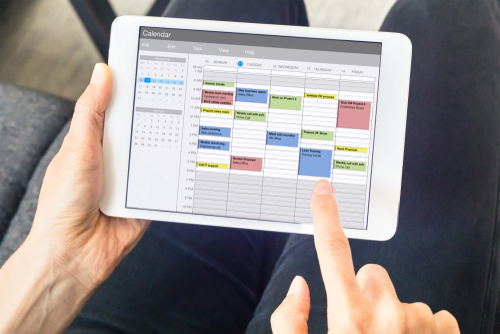During Ramadan, HR professionals, managers, and employers must be mindful of their Muslim employees' new routine.
Comprehending their background and meeting their specific needs demonstrates strong leadership and ensures that people work to their full potential. Implementing inclusive policies will foster confidence and lead to higher employee satisfaction, improved morale, and increased productivity.
While being strict and firm is always essential when developing policy, HR professionals and others should be flexible while setting guidelines for Ramadan in the workplace.
What can leaders do to support Muslim employees in Ramadan and help them maintain their wellbeing, given the sudden lifestyle changes?
Raise Awareness

Set Flexible Work Hours

You can plan your work schedule around these times, so they feel comfortable.
Please give them the right to plan their shifts around these meals. This versatility helps Muslim team members to pick and choose when they want to work.
And that's when they can maintain high productivity levels.
There're two types of people: those who prefer to work right after suhoor in the morning and others can be more productive late at night, after Iftar.
Set A Flexible 9-3 Work Schedule

They can also divide their day some hours before Iftar to arrange tasks with other team members, and individual tasks can be done after Iftar.
Give A Room For Shift Workers to Take a Break

If canteens are already available for staff, make arrangements for certain meals to be set aside for those who are fasting to not have fewer options at the end of the day.
Consider Work-from-Home Options

Don't forget freelancers who may have different timings, deadlines, etc.
Schedule Meetings Wisely

Avoid Evening Meetings

Be patient with lower job performance level

Set A Religion Practice Policy

Allowing Muslims to observe their religion while refusing to offer equal benefits to employees of another religion will be considered direct discrimination. So, it's better to set a clear policy regarding this.
Provide Private Praying Areas in The Workplace

Provide a comfortable (and private) place for your Muslim employees to pray. You can set a specific time for them in the meeting room or allow them to go to a local mosque as another option.
Utilize Ramadan to Maintain a Friendly Work Environment

Non-Muslim employees can also offer help to fasting Muslims to relieve some workload. It's not a must as every employee should be accountable for his duties, no matter the situation. However, this reflects how employees are generous and friendly with each other.
Handle Annual Leave Requests Smartly

So, employers can receive a flood of requests for annual leave near the end of Ramadan. Employees have to plan for their work progress during this period to enjoy their holidays without delaying or affecting their tasks.
Are you wondering now how to apply all these tips?
Communication plays a significant role here. Don't be afraid to ask respectful questions to get a clearer understanding of the holy month and how you can help them feel more comfortable. The majority of Muslims are open to sharing their thoughts to help the employer benefit both themselves and the business.







 2023-03-08
2023-03-08
 2022-11-11
2022-11-11
 2022-11-10
2022-11-10
 2022-11-05
2022-11-05
 2022-11-03
2022-11-03